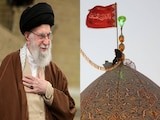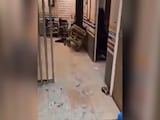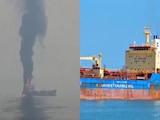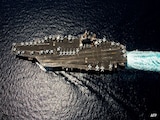Lebanon's Hezbollah said it targeted Israeli military positions in the disputed Shebaa Farms on Sunday, saying it was acting "in solidarity" with the Palestinian people after an unprecedented attack by Hamas gunmen from Gaza into Israel.
Israel responded with barrages of artillery into southern Lebanon. No deaths have been reported.
Backed by Iran, the Shi'ite group has risen from a shadowy faction established during Lebanon's 1975-90 civil war to a heavily armed force with big sway over the Lebanese state. Governments including the United States deem it a terrorist organisation.
Origins
Iran's Revolutionary Guards founded Hezbollah in 1982 to export its Islamic Revolution and fight Israeli forces that had invaded Lebanon. Sharing Tehran's Shi'ite Islamist ideology, Hezbollah recruited among Lebanese Shi'ite Muslims.
Military Power
Hezbollah kept its weapons at the end of the civil war to fight Israeli forces occupying the predominantly Shi'ite south. Years of guerrilla warfare led Israel to withdraw in 2000.
Hezbollah demonstrated its military advances in 2006 during a five-week war with Israel, which erupted after it crossed into Israel, kidnapping two soldiers and killing others.
The war killed 1,200 people in Lebanon, mostly civilians, and 158 Israelis, mostly soldiers. Hezbollah fired thousands of rockets into Israel.
Its military power grew after deploying to Syria in 2012 to help President Bashar al-Assad fight mostly Sunni rebels.
Hezbollah boasts precision rockets and says it can hit all parts of Israel. In 2021, Hezbollah leader Sayyed Hassan Nasrallah said the group had 100,000 fighters.
Iran gives Hezbollah weapons and money. The United States estimates Iran has allocated it hundreds of millions of dollars annually in recent years.
Regional Sway
Hezbollah has deep ties to other Iran-backed groups around the region, including the Palestinian factions Hamas and Islamic Jihad. As Saturday's attack unfolded, Hezbollah said it was in "direct contact with the leadership of the Palestinian resistance".
Hezbollah has trained Iran-backed groups in Iraq and takes part in fighting there. Saudi Arabia says Hezbollah has also fought in support of the Iran-allied Houthis in Yemen. Hezbollah denies this.
Role In Lebanon
Hezbollah's sway in Lebanon is underpinned by its arsenal and the support of many Shi'ites who say the group defends Lebanon from Israel.
Lebanese parties opposed to Hezbollah say the group has undermined the state and accuse it of unilaterally leading Lebanon into conflicts.
The group has ministers in government and lawmakers in parliament.
In 2008, a power struggle with Lebanese adversaries backed by the West and Saudi Arabia spiralled into a brief conflict. Hezbollah fighters took over parts of Beirut after the government vowed to take action against the group's military communications network.
Hezbollah entered politics more prominently in 2005 after ally Syria withdrew from Lebanon following the killing of former Prime Minister Rafik al-Hariri, who symbolised Saudi influence in Lebanon.
A UN-backed court later convicted three Hezbollah members in absentia over the assassination. Hezbollah denies any role, describing the court as a tool of its enemies.
In 2016, the Hezbollah-allied Christian politician Michel Aoun became president. Two years later, Hezbollah and its allies won a parliamentary majority. This majority was lost in 2022, but the group continued to exercise a big sway.
It campaigned against a judge investigating the 2020 Beirut port explosion after he sought to question its allies. The standoff prompted deadly clashes in Beirut in 2021.
Accused In Attacks On Western Targets
Groups that Lebanese security officials and Western intelligence have said were linked to Hezbollah launched suicide attacks on Western embassies and targets and kidnapped Westerners in the 1980s. One group, Islamic Jihad, was thought to be led by Imad Moughniyah, a top Hezbollah commander who was killed in a car bomb in Syria in 2008.
The United States holds Hezbollah responsible for a suicide bombing that destroyed US Marine headquarters in Beirut in 1983, killing 241 servicemen, and a suicide bombing the same year on the US embassy. A suicide bombing also hit a French barracks in Beirut in 1983, killing 58 French paratroopers.
Referring to those attacks and hostage-taking, Hezbollah leader Nasrallah said in a 2022 interview they were carried out by small groups not linked to Hezbollah.
Terrorist Designations
Western countries including the United States designate Hezbollah as a terrorist organisation. So do US-allied Gulf Arab states including Saudi Arabia. The European Union classifies Hezbollah's military wing as a terrorist group, but not its political wing.
Argentina blames Hezbollah and Iran for the 1994 bombing of a Jewish community centre in Buenos Aires in which 85 people were killed and for a 1992 attack on the Israeli embassy in Buenos Aires that killed 29 people. Both deny responsibility.
(Except for the headline, this story has not been edited by NDTV staff and is published from a syndicated feed.)















